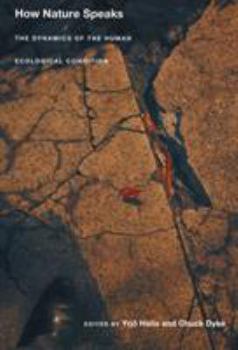How Nature Speaks: The Dynamics of the Human Ecological Condition
(Part of the New Ecologies for the Twenty-First Century Series)
Select Format
Select Condition 
Book Overview
Exploring ways of conceiving the complexity and multiplicity of humans' many interactive relationships with the environment, the contributors provide in-depth case studies of the interweaving of culture and nature in socio-historical processes. The case studies focus on the origin of environmental movements, the politicization of environmental issues in city politics, the development of a local energy production system, and the convergence of forest management practices toward a dominant scheme. They are supported by explorations of big-picture issues: recurring themes in studies of social and environmental dynamics, the difficulties of deliberative democracy, and the potential gains for socio-ecological research offered by developmental systems theory and Pierre Bourdieu's theory of intentionality.
How Nature Speaks includes a helpful primer, "On Thinking Dynamically about the Human Ecological Condition," which explains the basic principles of complexity and nonlinear thinking.
Contributors. Chuck Dyke, Yrj Haila, Ari Jokinen, Ville L hde, Markus Laine, Iordanis Marcoulatos, John O'Neill, Susan Oyama, Taru Peltola, Lasse Peltonen, John Shotter, Peter Taylor





